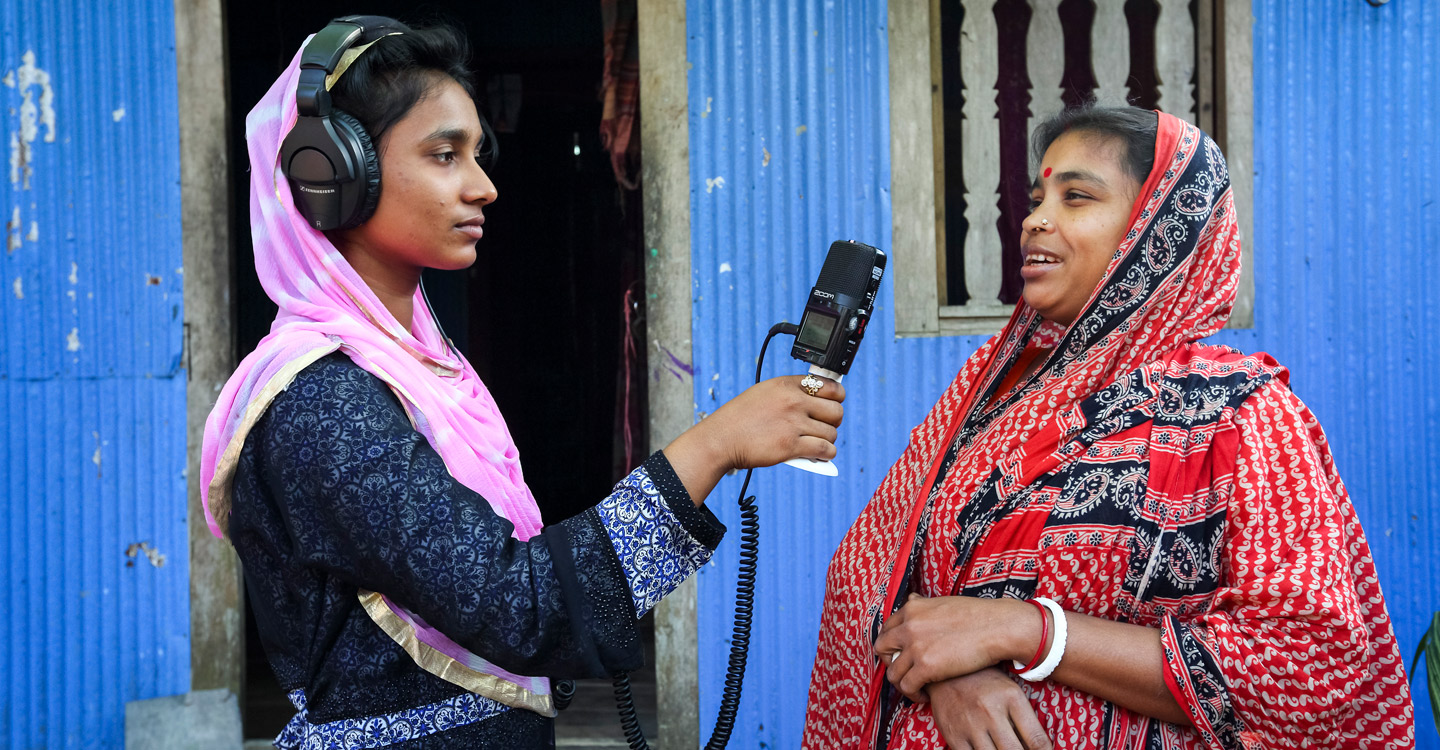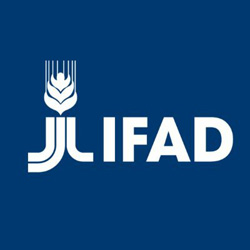Amplifying rural needs and voices: A conversation with Helene Papper
IFAD Asset Request Portlet
Asset Publisher
Amplifying rural needs and voices: A conversation with Helene Papper
Estimated reading time: 5 minutes
This blog has been updated to mark World Radio Day 2022.
It’s clearer than ever before: to address global crises, the communities who implement solutions must be involved, their voices heard, their knowledge included. But how do we bring forward voices from the world’s most remote areas? How do we create the engagement needed for informed decision-making across silos, from the private sector to investors, policymakers and global leaders?
This Last year, IFAD partnered with Farm Radio International on a series of radio programmes to engage rural communities on their particular concerns and possible solutions. These will feedfed into the global discussions in at the Food Systems Summit.
About 12 million people, nearly 8 million in rural areas, listened to these programmes. Nearly 7,000 women, men and youth involved in farming in Burkina Faso, Ghana, Tanzania and Uganda participated through call-ins, mobile interactions and app participation to share their views on how to develop healthier, sustainable and equitable food systems.
Helene Papper, IFAD’s Director of Global Communications and External Advocacy, knows the power of radio. Earlier in her career, she worked in United Nations peacekeeping missions in Mali, Sudan, South Sudan and Haiti, where she launched national radio stations to support electoral and peace implementation processes.
We asked her to tell us more about the significance of these on-air dialogues.
Why is it important to hear the voices of people in remote rural areas, and women and youth in particular?
Nearly half the world’s population live in rural areas of developing countries. Collectively these 3.4 billion people have the knowledge and experience to create sustainable food systems that can feed the world.
Rural dwellers are at the frontlines of climate change but lack the services, infrastructure or simply the economic resilience to withstand shocks.
Yet their voices are rarely heard in policymaking circles. For solutions that work, we need to bring their hard-won knowledge to the table, and base our decisions and actions on what people need and want.
The voices of women and young people are even less heard. Women make up the majority of the agricultural workforce, but are absent from decision-making.
The future of our food systems depends on youth remaining in rural areas as the next generation of producers. By listening to them, we can understand how to provide them with decent livelihoods and keep future food systems sustainable.
We need to listen to these rural voices. And then we need to deliver.
From your own experience in radio, how can the medium help people in rural areas transform their lives?
People sometimes underestimate the importance of radio, one of our most powerful communication tools. Radio gets information instantly to the least-resourced places, it connects rural communities to the world and to each other.
Radio is, above all, a trusted human voice. I found this in South Sudan, where people would radio in reports of gunfire, which we would analyse for signs of emerging conflict and go in to prevent even more serious incidents. We wouldn’t have received those reports if people didn’t trust the voice on the radio.
Radio can inform people, which was is essential during the COVID-19 crisis. But it’s also a two-way medium. It brings people into the conversation who would not otherwise be heard, like women in areas where they are prevented from speaking publicly. On radio identities are protected and they can speak openly. When people are listened to, they have hope, they have agency.
This report shows that rural people have views, needs and desires that must be listened to. Policymakers are sometimes cynical about “listening to people” but if it is done well, on a large scale, we get contextual data and meaningful solutions that meet needs that people themselves identify.
Regarding the report “On-Air Dialogues: Listening to Rural People”, what surprised you about the findings?
There were a few findings that I thought were remarkable, though I would not necessarily say surprising.
First, respondents overwhelmingly see a future in farming for their children. Only one in ten felt that youth should choose another occupation. But over one-third also said that change is needed for the next generation of farmers to succeed. This contrasts with accepted wisdom among decision-makers that people don’t see a future in farming. The report shows that rural people want to stay in farming, but food systems must change to make living incomes possible.
Second, while climate change increasingly affects small-scale farmers, few consider migration desirable. Instead, they want to build resilience.
Third, most respondents were concerned about the effects of chemical pesticides and fertilizers on the health and safety of food.
Fourth, respondents were clear that they want access to loans and credit, they want information on better farming practices and better inputs. These concrete asks go to the heart of IFAD’s mandate.
How is IFAD responding to the needs and desires of rural people?
IFAD’s work depends on listening to what rural people say they want and need to prosper, and to work with governments to provide it.
Through the Adaptation for Smallholder Agriculture Programme, we channel climate and environmental finance to smallholders and ensure their meaningful participation in decision-making.
We introduce nature-based solutions, which prepare for climate change while protecting biodiversity and human health. In Laos we introduced farmers to effective microorganisms as a low-cost organic replacement for chemical fertilizer.
We support youth to find meaningful work, and draw on their enthusiasm and openness to introduce innovations. In Kenya, youth-led agribusinesses are bringing new ideas to old businesses, from developing nutritious grain mixes for local markets, to COVID-safe milk vending machines.
We work with governments and producers to ensure farmers access loans and insurance facilities to deal with the climate crisis, as well as skills and inputs for sustainable agriculture.
These are only some of the ways IFAD responds to concerns like those raised in the on-air dialogues. The main thing is to keep listening, and trusting that rural people know what they need.
What would IFAD like global leaders to commit to following the Food Systems Summit?
Following the Food Systems Summit, IFAD calls on global leaders to transform our food systems to become sustainable and equitable, with small-scale producers at the centre of this transformation.
This means financing and political will, so rural people access inputs, markets, financial services, technology and information to grow businesses, adapt to climate change, protect the environment and biodiversity, and gain resilience. It means making food systems fairer and more equitable, providing decent livelihoods.
This summit is was about agreeing on specific, measurable actions, supported by funding. It is an opportunity to create the conditions rural people need to succeed.
We want leaders to unleash the power of public development banks, unlock funding and de-risk private investments in agriculture.
We call on leaders to support rural people to adapt to climate change, and bring green finance and inclusive investment into food systems.
Healthy and sustainable food systems are key to a world without hunger or poverty, to biodiversity and a healthy planet. They are integral to global resilience and peace.
We have heard from rural people what we need to do. We will keep listening. But now, it’s time for global leaders to listen and act.
Publication date: 20 September 2021